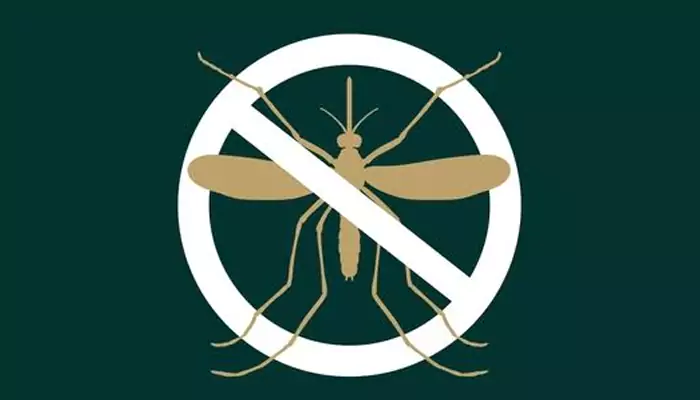Nigeria's Ongoing Battle Against Malaria: Progress, Challenges, and the Road Ahead
- Nomeeta
- 1 year ago
- 5 minutes read

Despite progress, malaria remains a relentless adversary in Nigeria's ongoing quest for public health improvement.
Malaria remains a major public health challenge in Nigeria, a country that accounts for a significant proportion of global malaria cases and deaths. Despite substantial progress in combating this disease, malaria continues to affect millions of Nigerians each year. The fight against malaria in Nigeria involves a multi-faceted approach that includes prevention, treatment, research, and community engagement. This ongoing battle reflects the country's commitment to reducing the burden of malaria and improving public health.
Impact of Malaria
Nigeria is one of the countries most affected by malaria globally, with the disease endemic in all regions. According to the World Health Organization (WHO), Nigeria has one of the highest malaria prevalence rates in the world, with millions of cases reported annually. Malaria is caused by Plasmodium parasites transmitted through the bites of infected Anopheles mosquitoes. It leads to symptoms such as fever, chills, headache, and, if left untreated, can result in severe illness or death.
The impact of malaria is profound, affecting the health, economy, and overall well-being of the population. It is a leading cause of morbidity and mortality, particularly among vulnerable groups like children under five years old and pregnant women. The disease places a significant strain on the healthcare system and economic resources, with high costs associated with treatment and prevention efforts.
Preventive Measures
Preventing malaria is crucial to reducing its incidence and impact. Nigeria's approach to malaria prevention involves several strategies:
Insecticide-Treated Nets (ITNs)
ITNs are one of the most effective tools for malaria prevention. These nets are treated with insecticides that kill or repel mosquitoes. The distribution of ITNs is a key component of malaria control programs, with millions of nets distributed to households across the country.
Indoor Residual Spray (IRS)
IRS involves spraying the inside walls of homes with insecticides to kill mosquitoes. This method helps reduce mosquito populations and prevent transmission of malaria.
Environmental Management
Reducing mosquito breeding sites is another critical aspect of malaria prevention. This involves measures such as proper waste disposal, draining stagnant water, and improving sanitation to minimize mosquito habitats.
Community Education
Raising awareness about malaria prevention and the importance of using ITNs, seeking prompt treatment, and eliminating mosquito breeding sites is vital. Community education programs aim to empower individuals and communities to take proactive steps in preventing malaria.
Diagnosis and Treatment
Effective diagnosis and treatment are essential for managing malaria and reducing its impact. Some of the them are as follows:
Rapid Diagnostic Tests (RDTs)
RDTs are used to quickly diagnose malaria in individuals with symptoms. These tests detect specific malaria antigens in the blood, providing results within minutes. Early diagnosis is crucial for timely treatment and reducing the risk of severe complications.
Artemisinin-Based Combination Therapies (ACTs)
ACTs are the recommended treatment for uncomplicated malaria. These therapies combine artemisinin derivatives with other antimalarial drugs to enhance efficacy and reduce the risk of drug resistance. The availability and accessibility of ACTs have significantly improved treatment outcomes.
Case Management
Effective case management involves the prompt diagnosis and treatment of malaria cases, as well as the management of severe cases. Health facilities across Nigeria are equipped to provide malaria diagnosis and treatment, with efforts to ensure that services are accessible to all, particularly in rural and underserved areas.
Research and Innovation
Research plays a critical role in advancing malaria control and finding new solutions to the challenges posed by the disease:
Vaccine Development
The development of a malaria vaccine is a major focus of research efforts. The RTS,S/AS01 vaccine, also known as Mosquirix, has shown promise in clinical trials and is being implemented in pilot programs in select areas of Nigeria. Continued research aims to improve vaccine efficacy and expand its coverage.
Drug Resistance Monitoring
Monitoring and addressing drug resistance is crucial to maintaining the effectiveness of antimalarial treatments. Research efforts focus on tracking resistance patterns and developing new drugs to combat resistant strains of the malaria parasite.
Vector Control Innovations
Innovations in vector control, such as the development of new insecticides and genetically modified mosquitoes, are being explored to enhance malaria prevention efforts. These innovations aim to improve the effectiveness of mosquito control measures and reduce transmission rates.
Challenges in the fight against the disese
Despite progress, several challenges remain in the fight against malaria in Nigeria:
Funding and Resources
Adequate funding and resources are essential for sustaining malaria control programs. Ensuring that financial resources are allocated effectively and efficiently is crucial for maintaining and expanding prevention and treatment efforts.
Healthcare Infrastructure
Improving healthcare infrastructure and ensuring that malaria services are available and accessible in remote and underserved areas is a key challenge. Strengthening healthcare systems and improving the distribution of resources are vital for effective malaria control.
Community Engagement
Engaging communities in malaria prevention and treatment efforts is essential for success. Addressing cultural beliefs, improving health literacy, and involving community leaders in malaria control initiatives can enhance the effectiveness of interventions.












